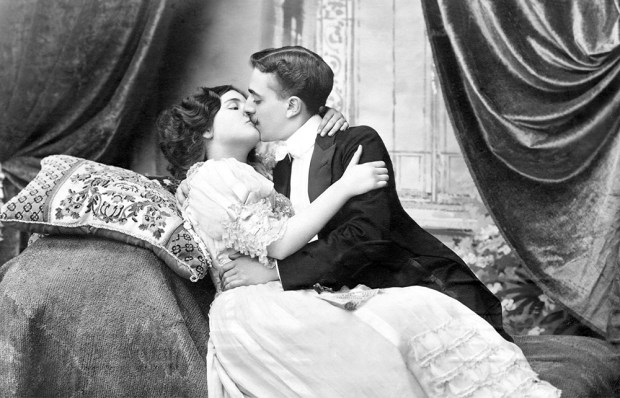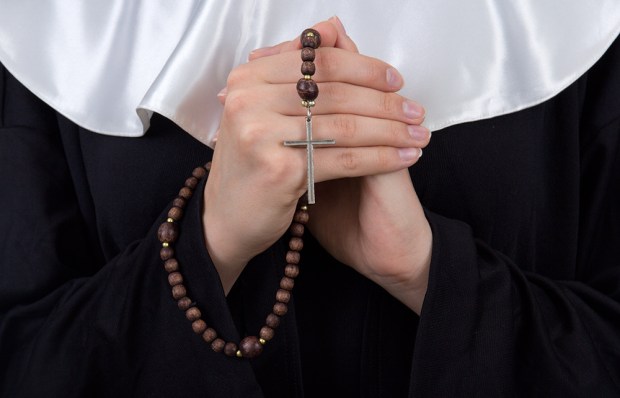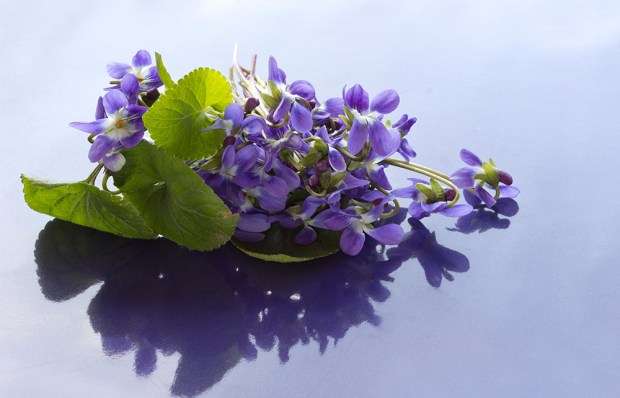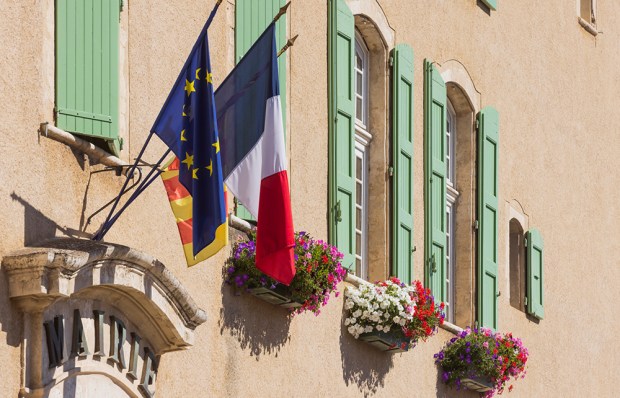Moofushi, Maldives
We clambered aboard a dhoni, the sturdy wooden boat that the Maldivians use for getting about the islands, and motored across from our high-end ‘all-inclusive’ resort to a ‘traditional’ island village for a guided tour. Maldivians are devout Muslims and it was suggested to us that we dress modestly and behave respectfully when there. Our guide was Mohamed, a self-confident 22-year-old fisherman. ‘Ask me anything. I know everything,’ he said.
His village was called Himandhoo. According to Mohamed, it means ‘fishing village’. He led us first to the village school. The writing on the classroom walls was Thaana, a peculiar script resembling a cross between shorthand and Arabic. Words are read from right to left; numbers from left to right. ‘How many letters are there in your alphabet?’ someone asked him. Our omniscient guide had to think long and hard about that one. ‘I don’t know,’ he said. ‘I think between 28 and 36. I was not very good at my language at school. I only got a C. I was better at English and got a B.’ He then related with great pride how he often used to climb out of the window when the teacher had his back turned and go fishing. ‘Were you ever punished?’ I said. ‘Beaten with a cane?’ He was astonished by the idea. ‘No, no,’ he said. ‘Certainly not. We don’t do that here. Once the teacher made me stand out in the sun at noon for an hour. Another time he made me stand with my arms stretched out and hung a brick on each arm and I had to stand there like that. But no, no beating. We don’t do that.’
The sandy streets were narrow and the women we saw walked quickly, their burkas billowing out behind them. Soon we came to a small building painted a vivid turquoise. Above the door was written in English: Magistrates Court. ‘Tell me,’ he said. ‘For what purpose do we use this building?’ ‘For trying criminals?’ ventured someone. ‘For marriage,’ he said. ‘Only for marriage. I myself hope to come here one day. We marry here usually at around 24 or 25.’ ‘What about sex before marriage?’ I said. ‘Is it allowed?’ ‘No,’ he said. ‘If you have sex before marriage and you are caught, a man will come to your house and hit you 80 times on your behind with a bat. If you are caught a second time, both you and the woman will be buried up to your necks and everyone will throw stones at your heads until you are both dead.’ ‘And so when was the last time this happened in the village?’ I said. ‘Never!’ he laughed. ‘Why would anyone want to break the law when you are punished like that.’
On a lighter note, he pointed to an ancient banyan tree and asked us to guess how old it was. Someone guessed a thousand years. ‘Three hundred,’ he said. ‘When I was a child, I used to hide from the teachers up there. Look up and you can see where the branches make a platform.’ We craned upwards and saw a knot of branches about 30 feet up. ‘Once I fell out, but I was OK,’ he said.
We walked on until we came to a very overgrown plot with a few headstones visible. ‘This is our cemetery,’ he said. ‘Women are not allowed in here, not even to mourn. If they want to mourn and cry, they can do that at home or at the mosque.’ ‘They aren’t allowed to go in here,’ said a female member of our group with a touch of steely irony, ‘but are they allowed to be buried in here?’ ‘Yes,’ said Mohamed magnanimously. ‘They are allowed in when they are dead. When we are dead, everybody can come in, even women.’
The houses were mostly windowless. Some were without doors or even a front wall and you could see the women inside sitting on the floor weaving coconut mats. In Mohamed’s house a young woman with a life of unremitting toil written all over her face was sitting on the floor weaving coconut mats. She looked up at us with the same expression of wariness, suspicion and incomprehension that you might see on a mistreated dog. Mohamed neither greeted nor acknowledged her. ‘Your mother?’ I said. ‘A neighbour,’ he said.
Back aboard the dhoni for the return journey, I asked Mohamed what the people of his village did for recreation seeing that alcohol is banned. Did they smoke weed, for example? ‘Only heroin,’ he said. Until now, Mohamed had answered our questions with a sort of deadpan levity. He was speaking from the heart for the first time, I believe, when he added vehemently: ‘Is a very big problem here in the Maldives. And I hate it.’
Got something to add? Join the discussion and comment below.
Get 10 issues for just $10
Subscribe to The Spectator Australia today for the next 10 magazine issues, plus full online access, for just $10.
To hear Jeremy Clarke and others read at the Spectator carol concert with the choir of St Bride’s, go to new.spectator.co.uk/carols
You might disagree with half of it, but you’ll enjoy reading all of it. Try your first month for free, then just $2 a week for the remainder of your first year.















Comments
Don't miss out
Join the conversation with other Spectator Australia readers. Subscribe to leave a comment.
SUBSCRIBEAlready a subscriber? Log in